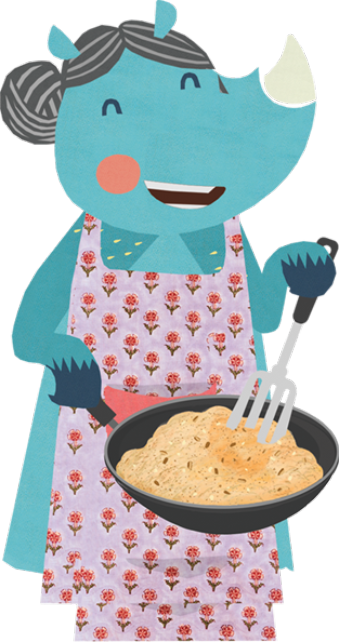While teething is a significant milestone, it’s uncomfortable and painful for babies. Let’s look at how to recognize teething symptoms, see how it impacts their appetite, and what remedies you can try.
Recognizing Teething Symptoms
Teething typically starts from 4-7 months and continues up to 2 years, although it varies across babies. Here are common signs that your baby is teething:

- Excessive drooling: This can lead to rashes around their mouth.
- Irritability: Teething can make babies extra fussy and clingy due to discomfort.
- Sore gums: Gums become sensitive and swollen during teething.
- Loss of appetite: Many babies reject or turn away from food during teething.
- Chewing on objects: Babies may put their hands, toys, or any object in their mouths to relieve gum discomfort.
- Fussiness and clinginess: Babies may be more irritable and want more attention.
- Slightly elevated temperature: A mild increase in body temperature (not above 100 degrees Celsius) is possible. Speak to your doctor if you’re concerned.
Teething & Loss of Appetite
Teething can significantly impact your baby's appetite due to several factors:
- Pain and discomfort: Teething is uncomfortable, so they may not be able to eat with sore gums. They could reject favorite foods or get fussy at mealtime.
- Mood swings: Some babies are sensitive to bodily changes during teething, which changes their sense of taste and texture. This sensitivity makes foods less appealing.
It’s normal for babies to eat less during teething. They primarily rely on breast or formula milk for nutrition, so temporary decrease in solid food intake is usually compensated for by increased milk consumption.
Helping Your Baby through Teething Discomfort

- Offer cold items for gum relief
- Chilled washcloth: Dampen a clean washcloth, twist it into a stick shape, and chill it in the freezer (not frozen). Let your baby chew on the chilled washcloth.
- Chilled foods: Offer cold foodstuffs like yogurt/curd, cold mashed bananas, or other cold fruits.
- Gently massage sore gums

Use clean fingers or a wet washcloth to gently apply pressure to your baby's gums in a circular motion. This massage can alleviate discomfort.
- Provide teething toys

Offering cold, homemade teethers or regular teethers at various times during the day can provide relief. Chewing on teething toys helps alleviate gum discomfort. However, ensure that the teething toys do not contain gel-based fillings.
- Avoid placing teething toys in the freezer as frozen toys can potentially harm your baby's gums.
- Never tie a string or thread around a teether for hanging around your baby's neck, as this poses a significant risk of accidental strangulation.
- Use resistive foods

Foods with some resistance, like cucumber, mango pits, or corn on the cob, can work as natural teethers. You can also dip silicone ladles or large spoons in cold puree or curd/yogurt and offer them for chewing/gnawing to your baby.
- Maintain breast or bottle feeding
Continue offering breast or bottle feeds on demand. Sucking motions can provide comfort and pain relief, and breast milk is known to have analgesic (pain-relieving) properties.
- Distraction

Engage your baby with fun activities or songs to temporarily divert their attention from teething discomfort.
- Prevent teething rashes
Frequent drooling during teething can lead to rashes around your baby's mouth. Gently wipe these areas to keep them comfortable.
If your baby appears to be in severe pain or you have concerns, consult your healthcare provider to rule out any complications.
Best Foods for Teething
Due to their sensitive and tender gums, eating can be an uncomfortable experience for teething babies. You can try offering a variety of foods to discover your baby's preferences.
Some babies may find solace in softer foods, while others might prefer the soothing sensation of crunchier options.

1) Chilled, pureed, or mashed foods
2) Soft foods like millet khichdi, dal rice, curd rice, upma, bhurji, pongal, and soft fruits or vegetables that require minimal chewing
3) Frozen fruits and vegetables or cold finger foods as natural teethers
4) Frozen waffles and pancakes can be offered to your baby
What to Avoid During Teething
Certain treatments should be avoided during your baby's teething phase:
1) Avoid giving over-the-counter (OTC) solutions such as teething tablets and teething gels unless prescribed by your doctor.
2) Teething necklaces or bracelets can pose multiple risks including choking, strangulation, and mouth infection.

3) Teething biscuits or rusks which contain sugar are unsuitable for babies below 1 year and can be choking hazards. Feel free to use teething puffs that are child-friendly and appropriate.
 We suggest
We suggest
Remember, teething is a natural milestone in your baby's growth, and while it can be challenging, it's temporary. Be patient and give them lots of cuddles, love and attention!


















